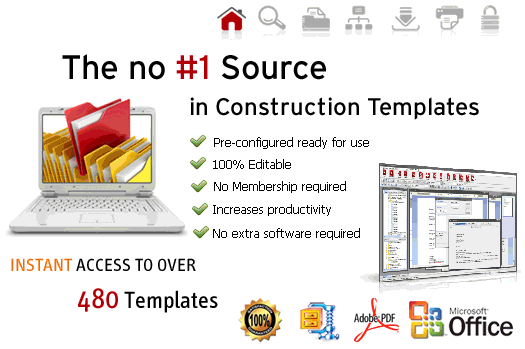What an exciting adventure building tiny houses cheap could be for those of you who are knowledgeable in construction.
It is my intention to provide you with information on starting such a business.
If you are interested in building tiny houses in your neighbourhood, you can get all sorts of video tutorials, like those offered by Brice (his one video below) on his YouTube channel … Living Big in a Tiny House.
OR, you can read on…
As I bring you a means to help you accelerate building your tiny house business cheap by providing the following information.
Okay, so you are now determined to start your very own business building tiny houses inexpensively so that others can afford great housing.
Did you know that you could possibly find sponsors to help you by supplying you with some of the necessary materials to build those tiny houses?
Well, you can.
Just about all building companies of all sizes have sponsored people, causes and projects. This concept is not new to any business.
It’s just new to you and only for a few days as you get started.
Sponsorship “getting” is a way of doing business and making a living for thousands of people in journalism, art, photography, television production, writing, research, charity, etc.
Hundreds of millions of dollars are spent each year by companies supporting sponsored events too.
From local kids sports teams to the Super Bowl, to building sailboats, to building a new school in a country of need.
You name it, there’s someone getting support for a project.
Your tiny house project is a perfect fit for this – if you plan it out right. It could even be worth tens of thousands of dollars to you.
There are no shortages of sponsors either.
There are tens of thousands of companies in the United States, Canada, Europe, Australia, and all over the world, so you never have to worry about running out of potential sponsors to ask or competing with any other business.
It doesn’t matter where you live or operate your tiny house business from or where your sponsors are.
It all works the same way everywhere. The basics for finding sponsors are not difficult to learn but you must know them.
The success of a sponsorship campaign hinges on planning, which in turn hinges on having a defined reason for building a tiny house.
One of the first things a sponsor will need to know is why you are doing it.
If they have to ask this question, then you have not made it clear in your communication.
Those who operate the companies you will be looking to for sponsorship don’t have time to read between the lines or follow up with you to ask basic questions about something they do not really care about.
So make sure that you explain clearly in the first place or you will lose a great opportunity.
It’s your job to get them interested in your project and demonstrate that by sponsoring you (providing their product) there is indeed value in it for them.
Top 10 Mistakes Made When Approaching Potential Sponsors
Mistake #1: Not Having a Mission Statement for Sponsors

Your mission statement is what delivers your message about your project to sponsors.
You may have at most only a few sentences in an email or two minutes on the telephone with a potential sponsor before they decide to continue engaging with you… or worse, shut you down.
As long as you address the key issues of why you are building tiny houses, and are able to offer something of value to them for supporting you, you will have a better chance of getting them to at least listen to you.
Mistake #2: Offering Something of Little or NO Value to Sponsors
You have to know what is and what is NOT valuable to companies you approach. It is different for most companies at any specific moment, but they are based on a handful of core things all companies must focus on; like general sales, marketing, brand management, competition strategy and new product promotion.
The key is for you to know where you could offer the most value right now, and that depends on what their focus is on, right now. So, if you research the companies, you may learn what it is.
It might be the sales of a specific product, a new product, trying to expand into a larger market, going head-to-head with a competitor, or maybe trying to build their brand in their marketplace.
Their websites are usually a great source of this information, as are the ads they are running.
Mistake #3: Not Knowing that There are Different Types of Sponsor Companies
There are three different types of companies, and they may have different specific needs.
Small local companies with local products and services are usually family owned and operated and are the most cost sensitive and the most community based.
Sometimes, given the right pitch, they may also be the most responsive to you as someone in the community.
Mid-sized companies compete against local community businesses and against the larger national competitors.
They are the ‘ham in the sandwich’, and you have to know what their priorities are. You may discover that you have a golden nugget for them.
The largest companies compete in local markets as well, but have specific plans for state and local markets and product marketing.
They also have large marketing budgets and are not concerned with the cost of any products you may ask for.
They’re large machines, and it’s just the process you need to know. So, you need to understand that their primary concern will be how you can add value to what they’re already doing.
Mistake #4: Offering Something too Unique

Companies are run by people and most people want to be innovative, but not too innovative. They want to be leading edge but not pushing the envelope.
Sometimes you may find it hard to gauge where their comfort cutting edge zone might be.
If you offer something they are not familiar with, you won’t be able to convince them of any benefit. You would have lined yourself up for 1% chance of win their support.
A twist on something they already do or understand is always your best bet.
For example: video product reviews, testimonials, product installation videos, a manual, blogs providing articles on related topics, social media posts, etc., are a few things they all know about and see value in.
By the way, you can do most of this with a cell phone camera and a website.
Mistake #5: Not Knowing How to Value Your Offer to Sponsors
Many folks do a lot of things, which if they charged for it would be valuable to companies. Many activities and interests are hobbies to some but businesses to others.
Some of those things could be as simple as setting up a Facebook fan page or Facebook group may be taken for granted by someone who spends a lot of time on Facebook.
But you need to be aware that many companies pay well to have someone set these things up.
But that is just one example. Some things have no value to a company or they already have a lot of what you are prepared to offer.
Example: if you offer to do a video testimonial, then it’s great value if they need more. If they already have dozens, then it’s of no value.
You have to understand how YOU can add value. In other words, what you can do for them and be clear on its worth… then find out if they need it. It’s just a process and a bit of research.
Have at least one to three things that you can do well for potential sponsors and then stick to them for all sponsor pitches.
Mistake #6: Not Treating Finding Sponsors Like a Business
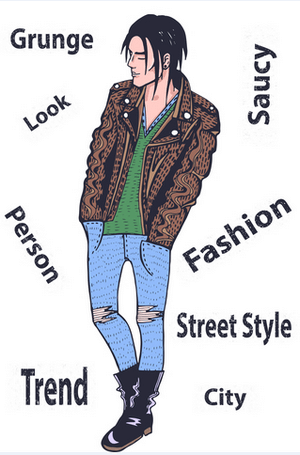
If you don’t treat going after sponsors like a business you will not be successful.
You are not asking for charity, discounts, deals or handouts, so your approach to potential sponsors must be businesslike.
You are offering to do something for them in exchange for product.
In business, you give something and get something.
Both sides gain something measurable in dollars.
You will be offering a service that is worth money and getting products worth money in return.
If you approach sponsors like you are asking for products, discounts and free stuff, you will NOT have much success… and you won’t be able to do it consistently and confidently.
Mistake #7: Not Understanding Basic Business Etiquette
All businesses deal with each other using certain business etiquette. If you don’t know the basics, you won’t be able to treat your project like a business or deal with sponsors in a businesslike way.
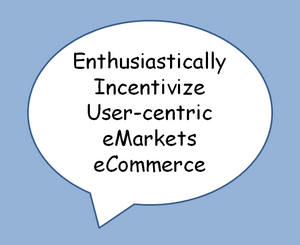
There is a certain amount business jargon (not a lot) that everyone uses; from your local butcher to the largest corporations, and you need to know what these “buzz words” are.
Also, there are expected formats of emails and telephone etiquette that you need to learn and follow.
With just a few of these rules under your belt you will be treated like a business person instead of someone off the street looking to solicit the company for free products.
Mistake #8: Over or Under-Valuing Your Offer to Sponsors
If you know the value of what you will be offering then you will be confident in asking for payment in products of value. You’re not soliciting. You are making a business proposition.
If you offer services that are much more valuable or much less valuable than the products you are asking for then you will not be taken seriously.
Example: taking on a full six month social media campaign for your sponsors on Facebook and Twitter is a lot of work, and the company will not believe that you will be able to do it because the products you are asking for are not worth even a fraction of that service.
You do have to offer a lot of value but how much value needs to be understood.
Mistake #9: Treating Your Project and Pitch Like a Personal Project
Yes, it is personal… for you. However, companies don’t care about your personal motivations any more than you care about their business problems beyond getting the products you want.
Companies focus on what is in it for them as much as you may only be thinking about what’s in it for you. That’s okay though. It’s business and everybody understands the rules.
Mistake #10: Treating Your Project and Pitch Like a Personal Project.
They do need to know about your project, your passion and why you are building tiny house, but not in great detail.
You will not get sponsor support easily based on trying to use an emotional angle.
In 99% of the cases, their decision to support you will be based on the value you bring to the table.
Yes, of course they need to see your passion and believe in your project, but beyond that, it’s a question of value for them and whether it will actually be practical for you to deliver on.
Now that makes it all much easier for you, since you will be able to treat your sponsor relationships like business, which takes a lot of heat off.
Summary

You offer something, you get something. That is the simple formula.
And your potential sponsors will determine your sincerity, commitment, and passion towards your project just by hearing (or reading) your answers to their questions.
How you are going to present to your potential sponsors is your pitch… you know, where your “why” actually supports your project concept… and, is presented in a way that results in a clear benefit for your sponsors for supporting your project with their materials.
In fact, whether you get sponsor support or not, unless you are clear about why you are building your Tiny House business and are committed to your project, it won’t get built.
What you have to do now is write it down and make it short… preferably one sentence… two maximum. You do not have to explain or justify it to anyone as it is your “why”, and no one else has to agree with it or approve it.
Any way you slice it, you will be judged about what you do or want to do, every day. So what?
The purpose of your mission statement is to tell the world and your sponsors, why you are starting your business of building tiny houses.
And then, present it in a way that results in a benefit for them.
So give it some thought, and once you can express your reason for building your tiny house, (ideally in one sentence like the examples above) write it down here, and keep it in your project folder as the very first page. This will help to keep you on track.
I am (we are) building a tiny house because (fill in the blank):
___ ___ ___ ___ ___ ___ ___ ___ ___
Then, get The Ultimate How-To Guide to Building a Tiny House (my affiliate link) to help you build yours the right way.
GET YOUR Tiny House Plans! (my affiliate link)
AND… you may find the following construction template store (my affiliate link) valuable in helping you setup your new construction business too.
Over 480 templates available within the following categories:
- Commercial Cost Control
- Project Management
- Contractual
- Tendering and Estimating
- Health and Safety
- Human Resource
- Quality Control
35 Ways to Add Value to Sponsors
This is a list of 35 different ideas on various ways you could offer value to sponsors. Once you read them you will be all fired up, and probably be able to think of a dozen more.
There are no limits to the imagination and what you or anyone else can offer a company or potential sponsor, where they will see the value. You are not limited in any way.
You may offer a combination of things that may be related to your skills and interests.
Everyone has skills and interests that are valuable; we may simply not realize what we can do that is of value. So there is likely no reason to try to learn a lot of new and complicated things.
For example: if you do web design, even just as a hobby, you could offer a small website make-over for a local company (IF the value of the product justifies it – like getting all your windows).
If you don’t know web design, then don’t try to learn it just for this.
Go with what you know, or are willing to learn because you always wanted to.
Then, you will be further ahead with products and a new skill. But only do this if you want to and NOT because you have to.

But… do not get bogged down with learning a new skill either.
Try to find something that you could do fast.
If you already use your camera or cell phone to shoot a lot of video clips, then learning a free app to edit the film footage might only take about an hour or so.
Plus, many apps are free.
That would make this well worth it.
Start by reading the list below.
Not everything will apply to you and some of the things will be of no interest to you, or you really couldn’t see yourself doing it. If that is the case then don’t do it.
Let this list trigger other ideas too. In my experience, everyone… and I do mean everyone has skills and interests that are of value and most don’t even realize it.
Example: think of what you like to do or have an interest in. Then, find out what it would cost to pay someone else to do it.
Let’s say you are good at gardening and you tend a small garden. It wouldn’t be cheap to hire someone to do it.
But you could hire someone to do your gardening for you as people do it all the time.
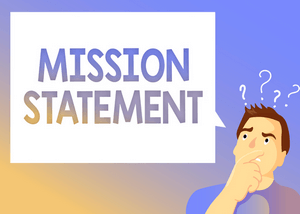
So to continue with the example… your mission statement for your project might be:
“I’m going to build a tiny house to live in the big city and demonstrate this fantastic low-cost housing option.
I will have a small vegetable garden in pots and planters and I will write about urban micro-living and micro-gardening.
As a sponsor, you will be prominently featured on my website, be credited in any media, in my articles and blogs as a wonderfully supportive and socially responsible company, selling top quality products.
You will get copies of all the photographs and any promotions that I do for the project…”
So now, you can formulate a pitch and add value to any company based on any hobby or interest.
Ask your family and friends too. Do some “brainstorming”.
Make a list of anything you are interested in, can do or have done well, as a job or as a hobby. You will be totally surprised at how valuable your skills are.
Don’t forget… If you spend a lot of time on Facebook… or you’re a big talker, or a reader… these are all skills too, because you’re good at them.
These Ideas Are Food For Thought
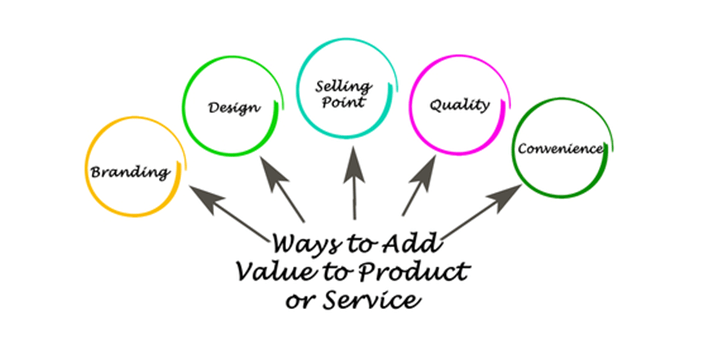
- Create a charity effort focused on building or using the tiny house in a way that positively impacts the community.
- Build your tiny house to sell and use it as your model home, then commit to using the sponsor’s products in future builds.
- Your tiny house could be a mascot of your company or hobby, parked at your job or business location. Signage on the side could advertise the sponsors.
- You could travel in your tiny house to trade shows, work sites, etc., with a sponsor’s signage on it.
- Presenting your tiny house at shows and conventions to sell and get orders to build, while promoting the quality materials (i.e. sponsor products).
- Writing a book on living in small spaces. (18K to 25K words only). You could put ads in your book and give a lot of credit to sponsors.
- Write a book on living off the grid (18K to 25K words only) – as above.
- Write a book on living green (18K to 25K words only) – as above.
- Write a book on the financial benefit of downsizing to a very small home.
- Write a book on building a tiny for use as an in-law suite to keep parents close.
- Write a book on tiny houses as being an affordable housing solution.
- Write a tiny house cook book, using few utensils for example: one pot meals maybe.
- Writing articles for magazines and blogs on the above 3 topics – You don’t have to be published to start this.
- Filming the construction of the tiny house for a how-to series highlighting the sponsor’s products. This could be done with a cell phone camera. You will be filming it anyway for fun… right?
- Doing a Tiny House Tour with a specific objective (like exploring working life on the road in a tiny house) and writing articles, blogs about your experience.
- Filming a project on just about any topic under the sun as long as the tiny house is involved. Your cell phone, tablet or an inexpensive camcorder would all work just fine.
- Using it in business, like running your home based business. Sponsor’s products will need to play a role in your business in some way that satisfies your sponsor’s marketing objectives.
- Include project press releases to local media. Most local papers are always looking for stories, so odds of getting coverage are about 80%.
- Blog articles describing the installation, use and review of their products on a dedicated project website, highlighting sponsors and their products, with pictures and video of the products and how they fit into your tiny house, their usefulness, quality, etc.
- Photographs of the products being installed and in use – posted on your blog and website. Give them the pictures for their own use as well.
- Film footage of installation and use for YouTube, video, website and blog. Give them a copy of the footage.
- Product testimonials for sponsors that you post on your site, YouTube and give them a copy.
- Provide ads for their products on your website or blog.
- Distribute promotional materials for their products, offering tours wherever you are with your tiny house, at home or on when on the road.
- Use Pinterest and other social media based plugs.
- Promotional photographs and/or film footage for the sponsor to use in their other marketing or promotions.
- Interview the manager or owner talking about their products.
- Write a how-to manual of their most frequently asked questions or problems.
- Plugs in all media (TV, radio and newspaper) and appearances at trade shows the sponsor participates in, as support and a show of appreciation.
- Signage and logos on your tiny house when at home or on the road.
- Fixed signage in front of your tiny house, for a period of time.
- If you’re an artist, do a work of art that promotes their business.
- If you have any direct skills from your job or profession, you may be able to apply those as well.
- When your tiny house is finished, hold an open house and a barbeque at the company that sponsored you. You can do this for many of them.
- Set up social media accounts for them. This is the kind of stuff that’s super easy if you have done it once or twice, but daunting if you haven’t. People attach value to someone else doing what is daunting to them.
Seriously consider getting The Ultimate How-To Guide to Building a Tiny House to help you build your tiny house the right way.
And here are some Tiny House Plans! (my affiliate link)
AND… you may find the following construction template store (my affiliate link) valuable in helping you setup your new construction business too.
Should you need to ask any question regarding building tiny houses cheap business, please feel free to leave me a comment below.
EXTRA
Even Canada is getting into the act with tiny houses! Province sets rules for tiny homes
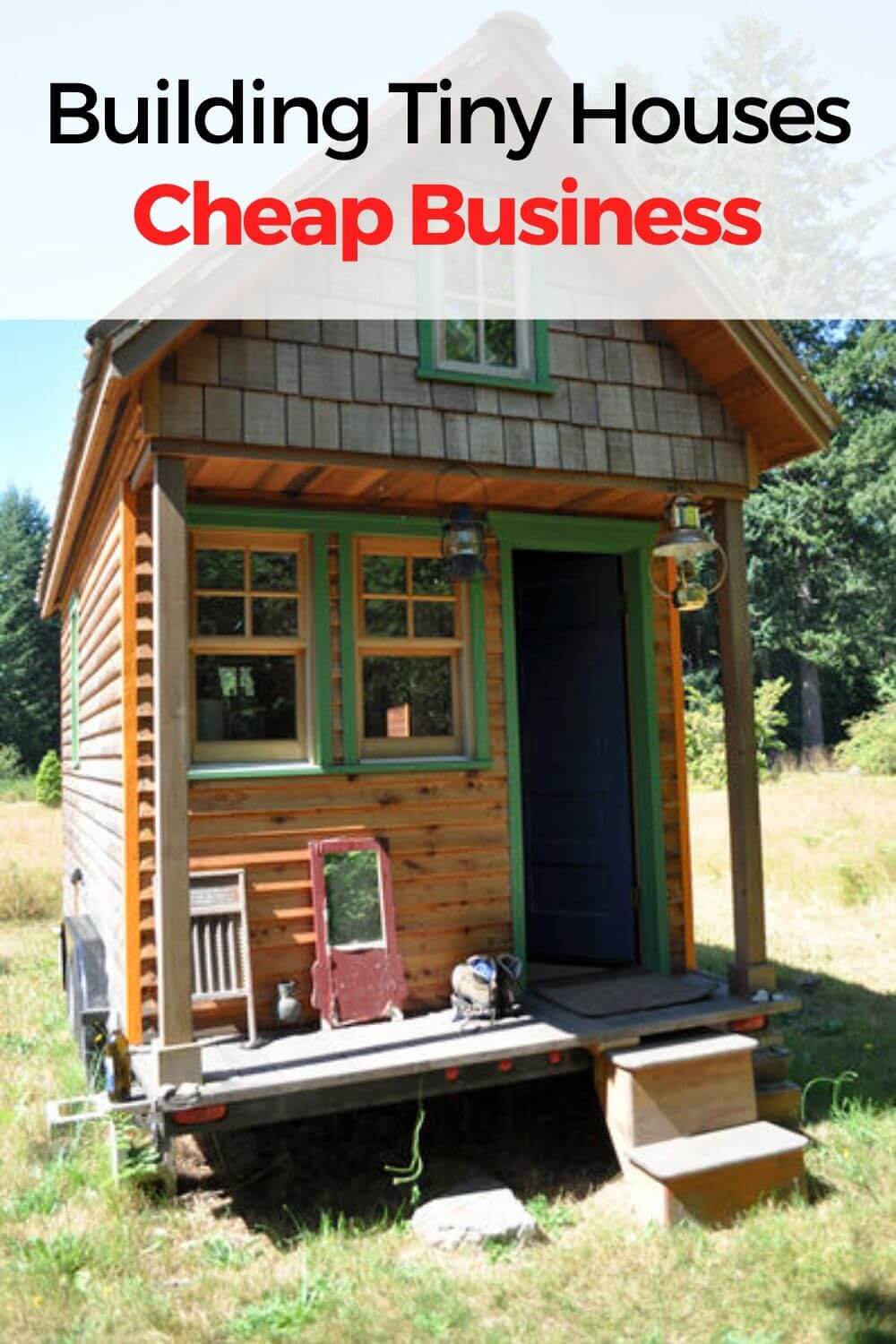
Header Image: by to https://en.wikipedia.org/wiki/Tiny_house_movement


![Tammy [CC BY 2.0 (https://creativecommons.org/licenses/by/2.0)]](https://upload.wikimedia.org/wikipedia/commons/thumb/0/0c/Tiny_house%2C_Portland.jpg/319px-Tiny_house%2C_Portland.jpg)
